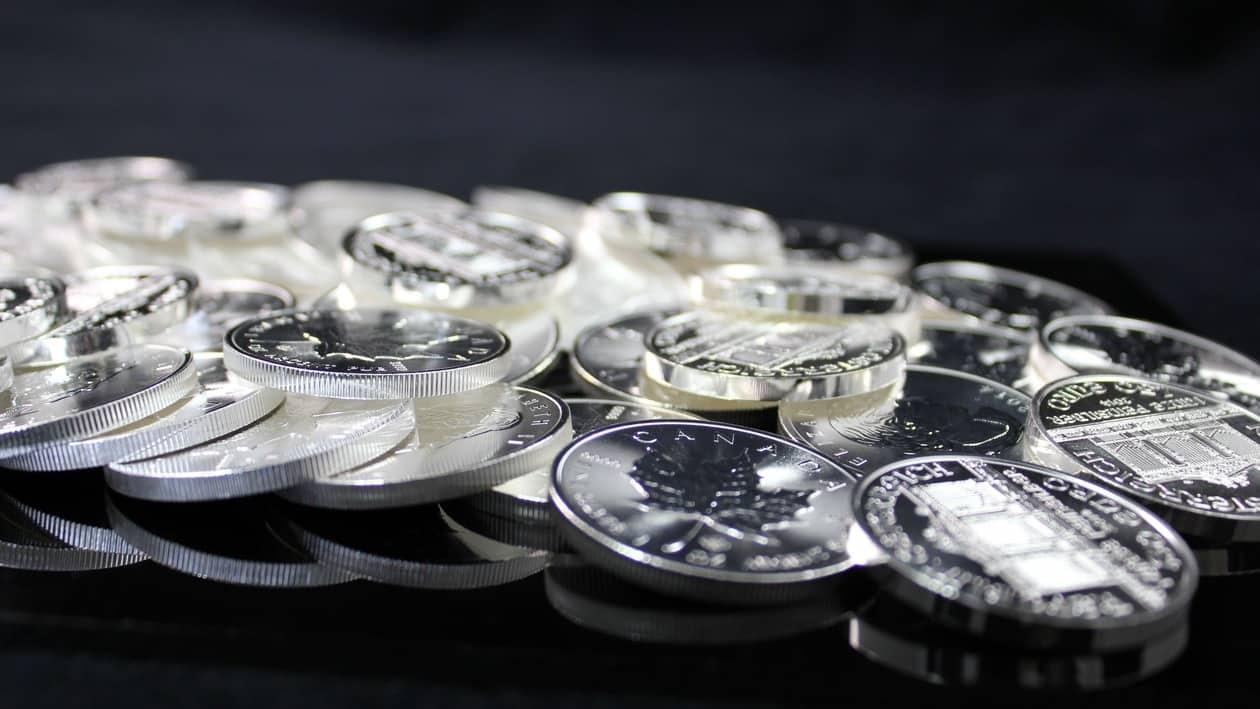Q. I am a 45-year-old surgeon, running my practice in Kochi. I have been investing 20% of my monthly income in physical silver and gold. I recently switched from physical gold to Sovereign Gold Bonds, some of my acquaintances have suggested that I should shift from investing in physical silver to silver ETFs. However, I do not understand the nuances of silver ETFs. Can you elaborate on the same and explain the advantages and disadvantages of investing in silver ETFs and how they are different from equity ETFs?
Silver exchange traded funds (ETFs) are a type of mutual fund that invests in silver bullion or silver futures contracts. They aim to track the price movements of silver in the global market and provide exposure to the precious metal without the hassle of storing or trading physical silver.
Silver ETFs have performed well in the recent months, as the demand for silver has increased due to its industrial and medical applications, especially in the fields of renewable energy, electronics and biotechnology.
For example, silver is used in solar panels, batteries, LED lights, medical devices and antimicrobial coatings. Silver is also seen as a hedge against inflation and currency devaluation, as it tends to retain its value in times of economic uncertainty. For instance, silver prices surged in 2020 amid the COVID-19 pandemic and the stimulus measures taken by governments and central banks.
Difference between silver ETFs and equity ETFs
Silver ETFs are different from equity mutual funds in several ways:
- Equity mutual funds invest in shares of companies that operate in various sectors and industries, while silver ETFs invest in silver bullion or futures contracts.
- Equity mutual funds have a higher potential for capital appreciation, while silver ETFs have a higher potential for capital preservation.
- Equity mutual funds are more diversified and less volatile than silver ETFs, which are more concentrated and more sensitive to market movements.
Taxation of silver ETFs
Silver ETFs are taxed differently from equity mutual funds in India. According to the current tax laws:
- Before the budget 2023 Silver ETFs were treated as non-equity funds for tax purposes, which means that they were subject to short-term capital gains tax if held for less than 36 months, and long-term capital gains tax at the rate of 20% if held for more than 36 months.
- Equity mutual funds are treated as equity funds for tax purposes, which means that they are subject to short-term capital gains tax at the rate of 15% if held for less than 12 months, and long-term capital gains tax at the rate of 10% without indexation benefit if held for more than 12 months.
- Pursuant to budget 2023, fromApr 1, 2023, debt mutual funds including silver ETFs are taxed as per investor’s applicable tax slab.
- The Budget 2023 has withdrawn the indexation benefits for debt mutual fund schemes where equity investments do not exceed 35% this includes silver ETFs since they are classified as debt mutual funds under Indian law. This means that silver ETFs schemes will be treated as short-term capital gains, irrespective of the holding period, and taxed according to the investor's income slab This will increase the tax burden for investors in silver ETF schemes, especially those in higher income brackets.
The rationale behind this move is to bring parity between debt mutual funds and fixed deposits, which are also taxed at slab rates without indexation. The government also wants to discourage investors from parking their money in low-risk debt mutual fund schemes and encourage them to invest in equity-oriented schemes, which have higher growth potential and lower tax rates.
The impact of this change will be felt by investors in various categories of debt mutual fund schemes, such as conservative hybrid funds, fund of funds investing overseas, domestic fund of funds, gold/silver funds and some multi-asset allocation funds. These schemes will lose their attractiveness as tax-efficient investment options and may see lower inflows or higher redemptions in the future.
Advantages of investing in silver ETFs
The advantages of investing in silver ETFs are:
- They offer a low-cost and convenient way to invest in silver, as they have low expense ratios and can be bought and sold on stock exchanges like any other shares.
- They provide diversification to the portfolio, as they have a low correlation with other asset classes such as stocks and bonds.
- They have high liquidity and transparency, as they trade throughout the day and disclose their holdings and net asset value (NAV) daily.
Disadvantages of investing in silver ETFs
The disadvantages of investing in silver ETFs are:
- They are subject to market risk, as they may not perfectly replicate the performance of silver due to tracking error, fees and expenses, or market manipulation. For example, a silver ETF may deviate from the spot price of silver due to differences in supply and demand, bid-ask spreads, brokerage commissions, or speculative activities by large traders or investors.
- They are subject to counterparty risk, as they may rely on third parties such as custodians, brokers or clearing houses to execute their transactions or hold their assets.
Conclusion
Silver ETFs are best suited for investors who want to gain exposure to silver as a commodity or a store of value, but do not want to deal with the complexities and costs of owning physical silver. They are also suitable for investors who want to diversify their portfolio with an alternative asset class that has a different risk-return profile than traditional investments.
However, investors should be aware of the risks and challenges involved in investing in silver ETFs and do their own research before making any investment decisions. Investors should consider their investment objectives, risk profile, time horizon and tax implications before investing in silver ETFs or equity mutual funds.
Kuvera is a free direct mutual fund investing platform.
Note: This is for informational purposes. Please speak to a financial advisor for detailed solutions to your questions.
